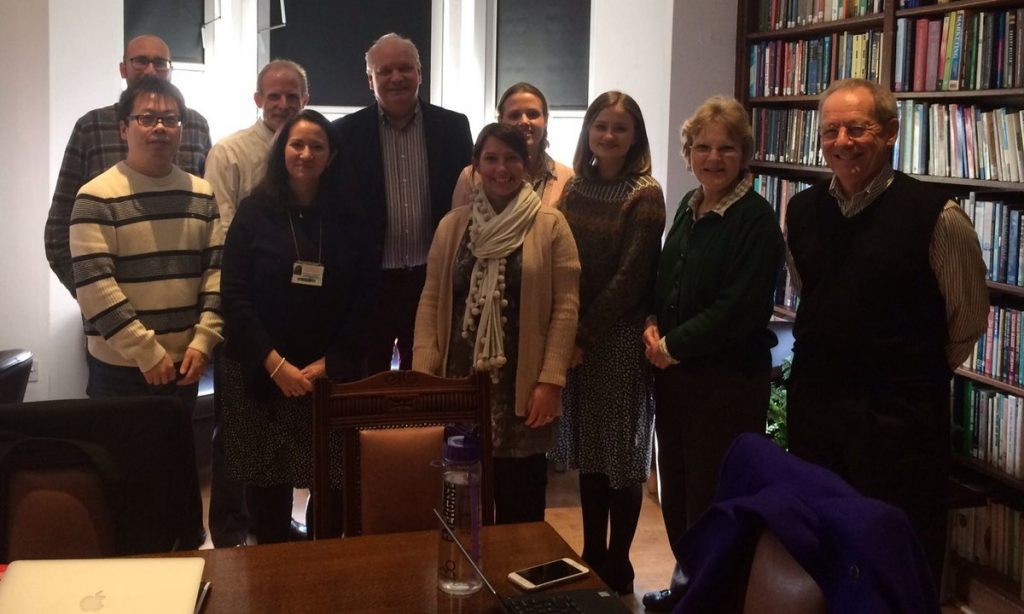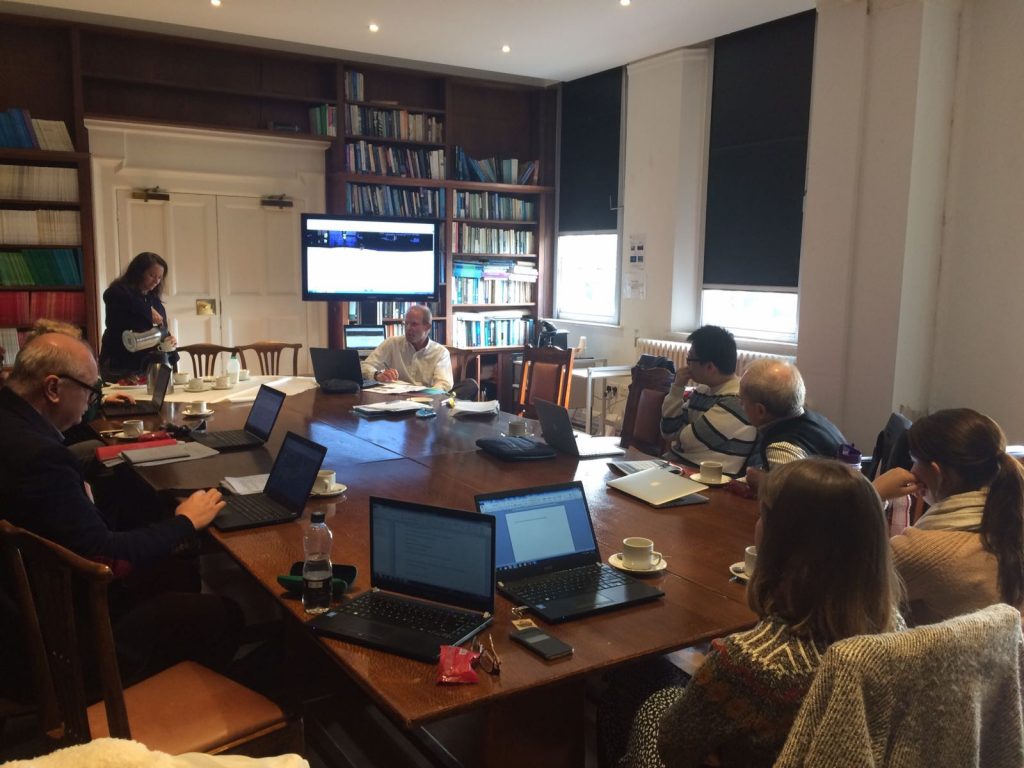 The University of Illinois at Urbana-Champaign, Colorado State University and City-REDI research collaboration in quantitative economic modelling is now set up.
The University of Illinois at Urbana-Champaign, Colorado State University and City-REDI research collaboration in quantitative economic modelling is now set up.
Professor Geoffrey J.D. Hewings, founding Director of REAL, the Regional Economic Applications Laboratory at the University of Illinois at Urbana- Champaign and Professor Stephan Weiler, founding Director of REDI@CSU, the Regional Economic Development Institute at Colorado State University, visited the University of Birmingham last month to work on the commencement of cooperation between REAL, REDI@CSU and City-REDI.
All three institutes aim to understand, analyse and inform local and regional economic development strategies on both sides of the Atlantic. The visit was the official start of the research collaboration programme on urban and regional economics with a particular focus on cooperating in the advancement and implementation of new quantitative techniques and methods to understand regional and local socio-economic systems with the ultimate aim to inform local, regional and national stakeholders.
REAL and REDI@CSU constitute the perfect research collaboration partners for the development of City-REDI.

REAL at the University of Illinois at Urbana-Champaign is a research centre with 29 years of experience that focuses on the development of theories and quantitative tools to model urban, regional and interregional economic systems. REAL provides timely, high quality analytical economic information for a variety of uses such as public policy decision making by public sector agencies and for strategic marketing in the private sector. REAL’s capabilities revolve around comprehensive state and metropolitan models that integrate econometric and input-output analysis to provide for both impact and forecasting analyses.
REDI@CSU based at Colorado State University aims to understand, analyze and inform economic development strategies particularly in struggling regions in both rural and urban areas, especially in Colorado. The dual focus on rural and urban areas leverages the neglected symmetries and synergies between traditionally disparate geographies highlighted by more than two decades of REDI@CSU scholar research. These overlaps may be the key to unlocking untapped potential for economically-marginalized populations in both the city and countryside. The institute is focused on engaged research-driven analyses, developing, applying, and refining the most frontier methods and perspectives in service to Colorado’s regions and beyond. In that sense, the goal is to not only make the Institute the natural partner for public, private, and non-profit organizations seeking to promote sustainable regional economic development, but also be recognized as a leading global source of cutting-edge urban, rural, and regional economics scholarship.
Professor Geoffrey J.D. Hewings, founding Director of REAL, served in this position until August 2016 and is now the Emeritus Director. He has received Fulbright and Woodrow Wilson awards and was Executive Director of the Regional Science Association International which recognized him with an award for Service to Regional Science. His major research interests lie in the field of urban and regional economic analysis with a focus on the design, implementation, and application of regional economic models. He has devoted considerable time to the way in which these models might become useful in policy formation and evaluation.
Professor Stephan Weiler, Director of REDI@CSU, holds the William E. Morgan Endowed Chair as Professor of Economics at Colorado State University. Stephan’s research, teaching and mentoring have spanned a variety of development and labour market issues in Africa, Appalachia, Europe, and the American West. His current work focuses on regional economic growth and development, particularly in rural and inner-city areas, combining theoretical, empirical, and policy analyses on topics such as information, innovation, industrial restructuring, land use, public/private partnerships, immigration, entrepreneurship, and the environment.
REAL is an inspiring example of what City-REDI wants to be in a few years’ time. It draws its staff from cooperating institutions and advanced graduate students in the fields of economics, geography, urban and regional planning, computer science and mathematics. Many of the projects the students work on then become the basis for thesis and dissertations and articles published in peer-reviewed journals. REAL is also a hosting institution for many research visitors every year which creates a multidisciplinary and vibrant research environment.
The three institutes are currently developing early-stage collaborations in the topics on endogenous growth, entrepreneurship and regional modelling. This partnership should lead to a range of cross-authored publications and co-development of generalizable frontier methods and models that can help us understand and address economic challenges on both sides of the Atlantic.
This blog was written by Professor Raquel Ortega-Argiles, Chair, Regional Economic Development, City-REDI, University of Birmingham
Disclaimer:
The views expressed in this analysis post are those of the authors and not necessarily those of City-REDI or the University of Birmingham
To sign up for our blog mailing list, please click here.
